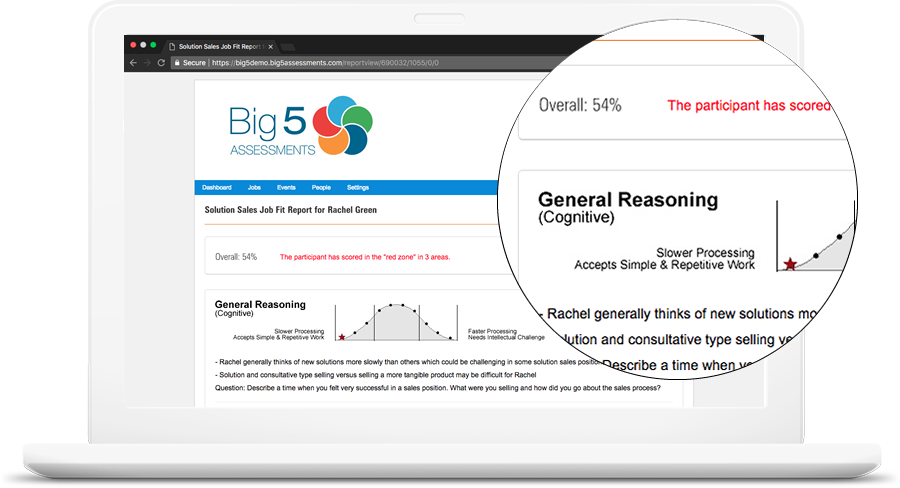Cognitive Ability Test
The Cognitive Ability Test measures an individuals speed of problem solving and learning styles.
Cognitive Ability Test
We all talk about identifying and hiring "Talent", but what makes a candidate talented? Personality (their preferred behavioural approach to work) is one key element. The second key element is ability.
Research confirms what you probably already knew - the best predictor for job performance is cognitive ability. Cognitive ability is one of the two most frequently cited factors that impact job performance (the other is Conscientiousness, measured by our Big Five Personality Assessment).
The Cognitive Ability Tests assess how quickly the candidate will:
- adapt to new changes
- grasp new concepts
- see new opportunities
It is a measure of how well people can solve problems, process information and learn new things.
The Right Level Of Ability To Do The Job
It is critical to understand the requirements of the job when it comes to ongoing learning, and at what pace, in order to best match that to the individual to help create a greater chance of success.
You want all of your employees to have the right level of ability that fits their job. Depending on the role, you´ll want to know if a candidate is a strong problem solver, a mathematical genius, or capable of intense focus and intellectual challenge. Each of these elements you need to know to find the right candidate for the job.
What are the Benefits of Assessing for Cognitive Ability?
- Frequently cited as the best predictor of future job performance
- Gain insight as to how well the candidate will be able to solve problems and process information.
- Shorten coaching and development time by understanding how quickly someone learns and if there are methods that might work better for them as an individual.
Test Summary

Test Summary
| Test | Cognitive Ability Test |
|---|---|
| Measures | Problem solving and speed of learning and processing new information |
| Predicts | The ability to quickly and accurately solve problems.
High scorers will learn new skills quickly and have the ability to solve more complex problems. Low scorers will take longer to acquire new skills, but once trained, may be more successful than others in handling routine tasks. |
| Questions | The 30 item test is broken down into 10 items that measure verbal reasoning, 15 items that measure numerical reasoning and 5 items that measure special reasoning |
| Time | 7-minutes (timed test) |
| Price | View Pricing Plans |
